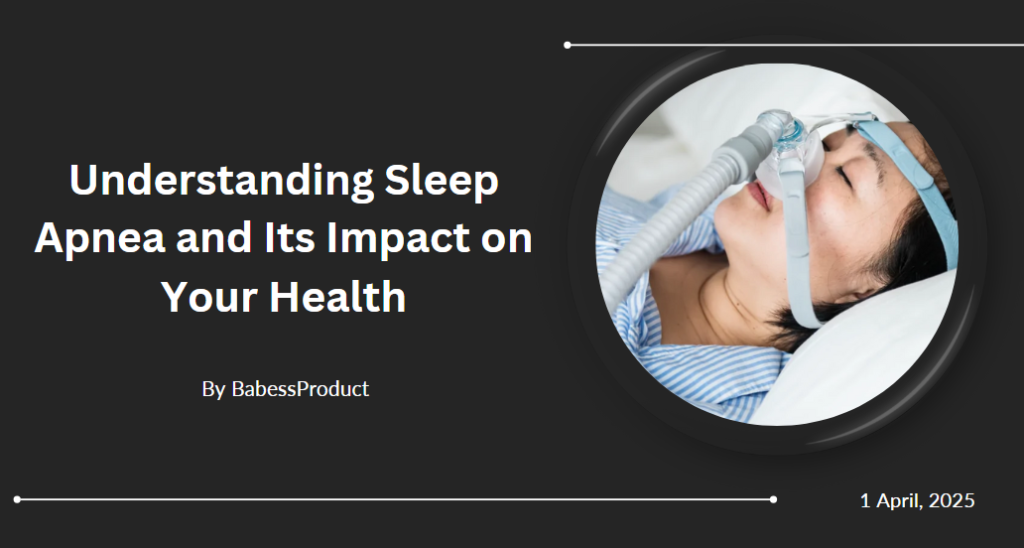Sleep is a fundamental element of overall well-being, yet millions face challenges that disrupt their rest. One significant, yet often under-diagnosed, condition is sleep apnea. Left unmanaged, this sleep disorder may impact physical health, daily energy levels, and overall quality of life. Those suffering from sleep apnea are encouraged to seek treatment from specialists such as a family dentist.
What is Sleep Apnea?
Sleep apnea is a condition in which breathing is repeatedly interrupted during sleep. These interruptions occur because the airway partially or completely collapses, preventing sufficient airflow. While moments of interrupted breathing may only last a few seconds, they can recur dozens or even hundreds of times per night. While this condition can affect individuals of any age and background, certain factors may increase susceptibility to sleep apnea. These include age, higher body weight, certain anatomical features (like a narrower airway), or underlying health conditions.
There are two primary types of sleep apnea. Obstructive sleep apnea is the most common form and is characterized by throat muscles relaxing, leading to throat tissue collapsing and airflow obstruction. Central sleep apnea is neurological, meaning nerve signals to throat muscles occasionally won’t get through and cause similar throat tissue collapse. It is also possible for some individuals to suffer from both forms of apnea.
How Do You Tell If You Have It?
Identifying sleep apnea can be challenging. This is because many symptoms occur overnight while the individual is asleep. Symptoms may manifest during the day or involve behavioral patterns that loved ones or bed partners can help observe.
Common Signs of Sleep Apnea
- Loud Snoring: This is often recognized as a prominent and frequent symptom, particularly with obstructive types of sleep apnea.
- Pauses in Breathing: Bed partners may notice breathing temporarily stops entirely, often followed by gasping or choking sounds.
- Fatigue or Daytime Sleepiness: People with sleep apnea frequently feel tired during the day due to disrupted sleep cycles.
- Difficulty Concentrating: Reduced sleep quality can impair attention, memory, or problem-solving abilities.
- Restlessness During Sleep: Individuals with sleep apnea may toss and turn or wake up frequently throughout the night.
- Headaches or Dry Mouth: These can occur upon waking due to restricted airflow during sleep.
Diagnosis
For those suspecting sleep apnea, a professional assessment is usually required. Sleep specialists use diagnostic tools such as polysomnography (a sleep study conducted in a clinical setting) or home sleep apnea testing. These evaluations measure factors such as airflow, breathing patterns, and oxygen levels during sleep, providing a clearer picture of the condition.
How Do You Treat It?
Treating sleep apnea involves addressing the underlying cause, improving breathing during rest, and alleviating daytime symptoms. Whether mild, moderate, or severe, multiple approaches exist to better manage the condition. Healthy habits can often alleviate mild forms of sleep apnea. Weight loss may reduce airway compression while avoiding alcohol before bedtime could prevent the relaxation of throat muscles. Sleeping on your side rather than your back can also help keep the airway open. A family dentist trained in sleep medicine may recommend custom-fitted oral appliances that reposition the jaw or tongue to maintain airflow. These devices are non-invasive and can be effective for some individuals.
Conferring With a Family Dentist
Sleep apnea impacts more than just rest. It has the potential to undermine physical wellness, long-term health, and quality of life. Recognizing the symptoms early and seeking professional evaluation is the best way to address this condition comprehensively. A family dentist who specializes in sleep medicine plays an integral role in providing non-invasive therapies like oral appliances. For those seeking guidance or diagnosis, reaching out to a trusted dentist remains an effective first step toward better sleep and health.

